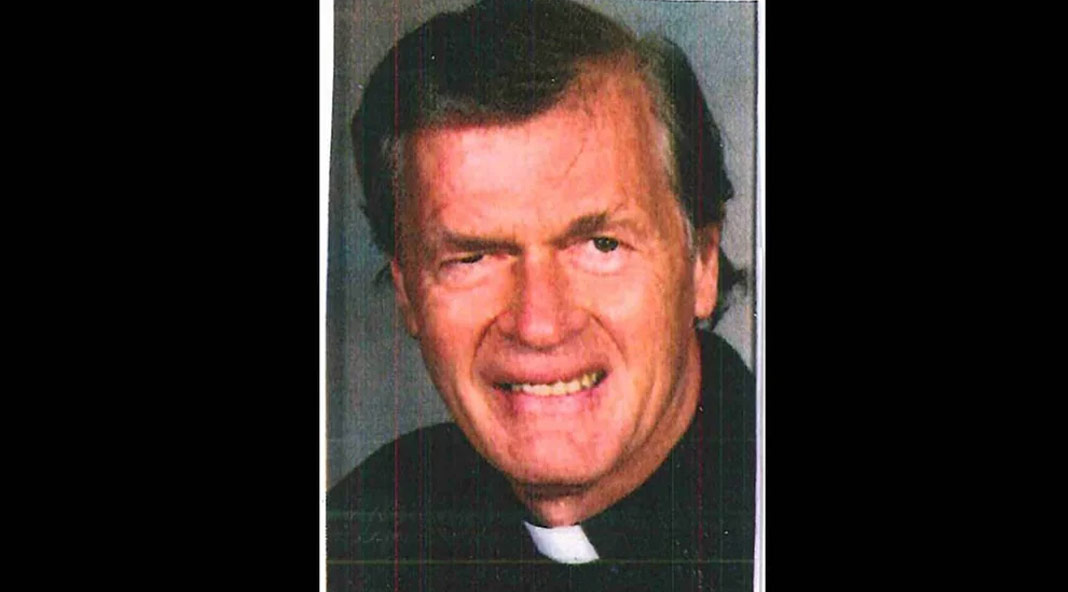Hartford Courant
Dave Altimari
A grainy photograph from 1964 shows a collar-wearing Rev. Daniel McSheffery receiving his badge from Hartford’s city manager and fire chief – the young priest towering over the city officials appointing him fire chaplain.
It was the beginning of the ascendancy of Hartford-born McSheffery: over the next eight years he became head administrator of the local Catholic school and the archdiocese’s first-ever pastor-associate. In time, he grew so close to city and state officials that in 1972 the city declared a “Daniel McSheffery Day.” More than 600 people turned out for a dinner honoring him at the Valle’s steakhouse where the keynote speaker was state Attorney General Robert Killian.
But by 2005, McSheffery was sitting at a table in a nondescript Florida office, his eyes avoiding a video camera fixed on him. During that lawsuit deposition, he was confronted with a long list of individuals who accused the church’s former rising star of sexually assaulting them when they were children.
He was asked whether he had assaulted each accuser. Over 35 minutes, McSheffery declined to answer 56 times, citing his Fifth Amendment rights against answering even basic questions like where he was born. When attorney Joel Faxon asked him pointed questions about accusations of raping young boys in church rectories and school offices, McSheffery avoided eye contact, removed his glasses, rubbed his eyes and shrunk his 6-foot-4 body deeper into his chair.
Last week the Archdiocese of Hartford released a list of priests who had been “credibly accused” of molesting children and revealed it had paid $50.6 million to settle lawsuits. It said there was one priest who had 20 claims settled against him for nearly $11 million.
While the archdiocese did not identify that priest, The Courant has determined through court records and interviews with attorneys that it is McSheffery. The 20 claims making him the second-most sued in Connecticut history, just shy of the 21 claims made against former priest Raymond Pcolka from the Bridgeport Diocese.
When the lawsuits began piling up, the church removed McSheffery from ministry and he moved to Florida in 2002. Neither the Vatican nor the archdiocese, which declined to comment on McSheffery, took more drastic action against the priest. He was not laicized, which would have removed his status as a member of the clergy, or sentenced to a life a of “prayer and penance.” The distinction means the church continued paying McSheffery a stipend and health benefits.
McSheffery died in Florida in 2014, but he left a devastating legacy.
“He was probably the most cunning, deceitful, sickest, sociopathic monster ever to wear a Roman Catholic collar in Connecticut,” New Haven attorney Thomas McNamara said.
